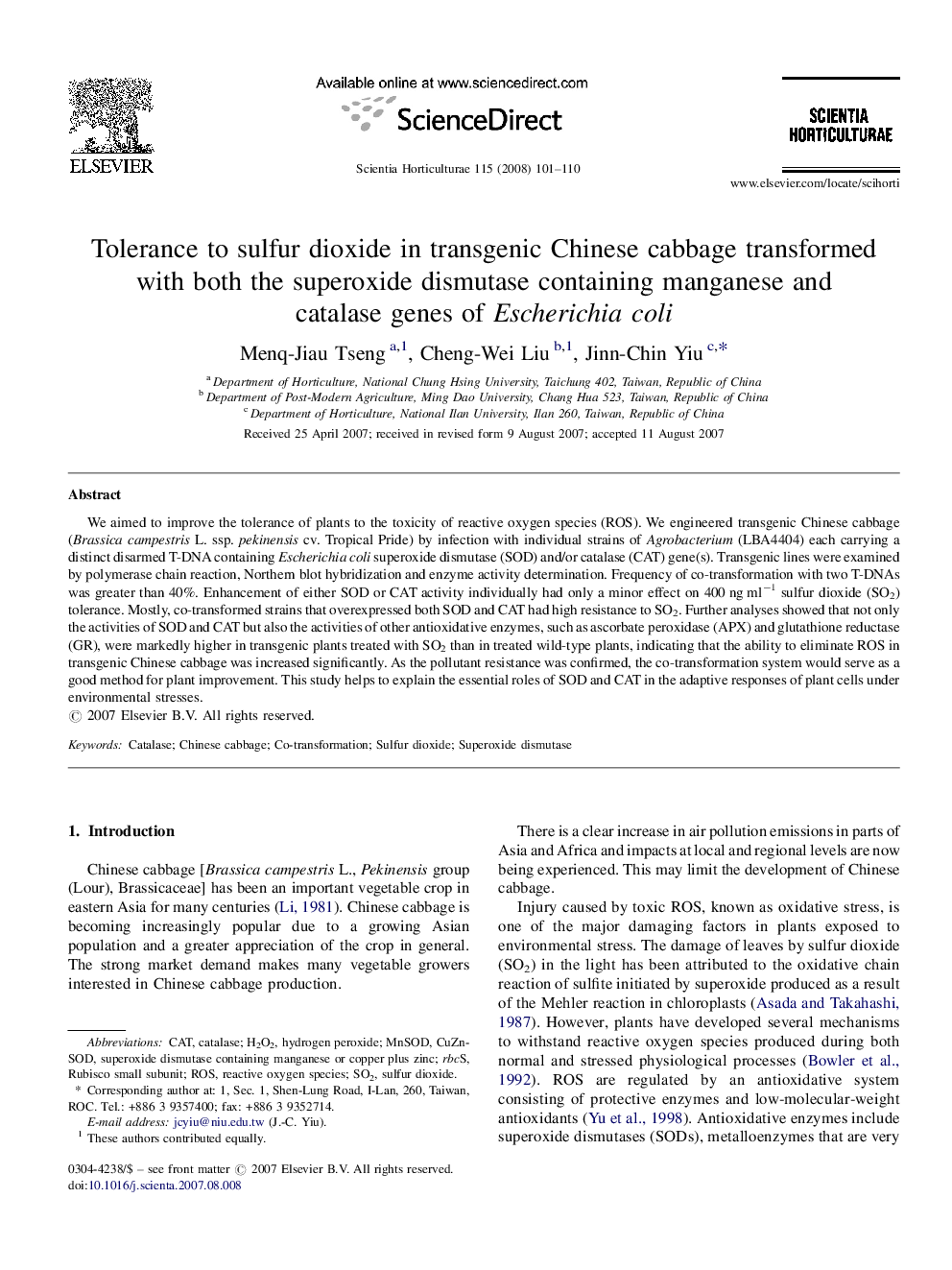| Article ID | Journal | Published Year | Pages | File Type |
|---|---|---|---|---|
| 4569495 | Scientia Horticulturae | 2008 | 10 Pages |
We aimed to improve the tolerance of plants to the toxicity of reactive oxygen species (ROS). We engineered transgenic Chinese cabbage (Brassica campestris L. ssp. pekinensis cv. Tropical Pride) by infection with individual strains of Agrobacterium (LBA4404) each carrying a distinct disarmed T-DNA containing Escherichia coli superoxide dismutase (SOD) and/or catalase (CAT) gene(s). Transgenic lines were examined by polymerase chain reaction, Northern blot hybridization and enzyme activity determination. Frequency of co-transformation with two T-DNAs was greater than 40%. Enhancement of either SOD or CAT activity individually had only a minor effect on 400 ng ml−1 sulfur dioxide (SO2) tolerance. Mostly, co-transformed strains that overexpressed both SOD and CAT had high resistance to SO2. Further analyses showed that not only the activities of SOD and CAT but also the activities of other antioxidative enzymes, such as ascorbate peroxidase (APX) and glutathione reductase (GR), were markedly higher in transgenic plants treated with SO2 than in treated wild-type plants, indicating that the ability to eliminate ROS in transgenic Chinese cabbage was increased significantly. As the pollutant resistance was confirmed, the co-transformation system would serve as a good method for plant improvement. This study helps to explain the essential roles of SOD and CAT in the adaptive responses of plant cells under environmental stresses.
